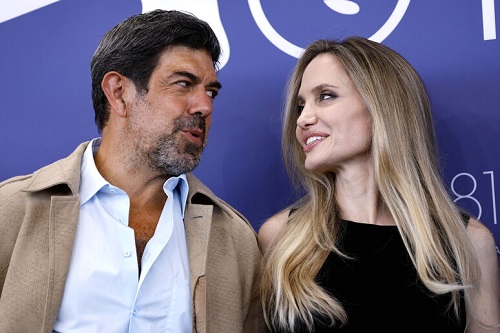A Woodpecker goes to Hollywood
TORONTO – Nicknamed “Picchio” as a little boy by his father, Actor Pierfrancesco Favino was so enamoured with the moniker that he attempted to launch his career substituting it for his first name. Not surprisingly, he walked that idea back fairly quickly given how odd “Woodpecker” would have sounded being called out at auditions. Not the brightest idea for a stage name, nor entirely marketable. But why the nickname? He was vociferous as a child, given to fits and rages while often stomping on floors and banging walls – hence Picchio. But what his father might have shrugged off as childish petulance, revealed itself as steely determination and grit in his adulthood.
Pierfrancesco Favino is bar none the most visible Italian actor since the early 2000s, and a domestic powerhouse. Last year alone he starred in three of Italy’s best films of arguably the last 5-10 years: The Commander, Last Night of Amore and Adagio. In each of the films, he portrayed hardened yet vulnerable men, while managing to avoid ‘’overlap”– a tendency that seems to plague even the most gifted actors – in the performances. Were it not for his screen credits in Adagio for example, he’d have remained almost entirely unrecognizable by the physical transformation in the role – playing an ex convict and member of the Roman Magliana Gang.
It’s this sort of commitment to the craft that has caught the eye of American filmmakers, along with his high aptitude in English of course. Since the turn of the century, Favino has played in massive American films like Angels & Demons, World War Z, Night at the Museum, Chronicles of Narnia and Rush – to name a few. But above all, Favino has remained as clamorous as his boyhood-self, banging the drum for Italian actors to make themselves more visible to the international market – and calling out American Productions for cultural appropriation.
When Michael Mann’s Ferrari cast a Spaniard and Americans in Italian roles Favino was the only Italian with gumption to call it out: “If a Cuban can’t play a Mexican, [due to cultural appropriation] why can an American play an Italian…it only happens with us”. His protest went further, “To me it seems like an attitude of contempt towards the Italian system”. One can soundly argue that “cultural appropriation” is wholly absurd as a premise, but Favino was/is more importantly pointing out the selective virtue signalling that occurs when the accusation is hurled.
Yet, for all of his efforts to help gain Italians more visibility and work in the international scene, some of his fellow countrymen and women think him insufferable and egocentric, charging him as a Fascist and Sovereigntist. But most of that is claptrap from the politically captured ideologues, and pearl clutching community. Leaders don’t just say what others are thinking – they do what others aren’t doing. And in that respect particularly, Favino continues to forge ahead of his peers.
So while some of Italian filmmakers prefer to spend their time bewailing tax credit reforms or “big bad” Meloni’s efforts to make more of the funds available to local talent and Italian stories, Favino is busy “scene stealing” and co-starring with Angelina Jolie in the new film Maria – about the Greek Opera Legend Maria Callas. Early reviews are buzzing about his performance, which may just see him finally nominated for an Oscar come next March.
Maybe then his Italian colleagues will start taking Picchio’s cue. True to form, this woodpecker has a strong head and looks to have burrowed through to the other side.
Scene image from “Maria” courtesy of Netflix, Rai Cinema; image of Favino and Jolie courtesy of Getty Images
Massimo Volpe is a filmmaker and freelance writer from Toronto: he writes reviews of Italian films/content on Netflix





